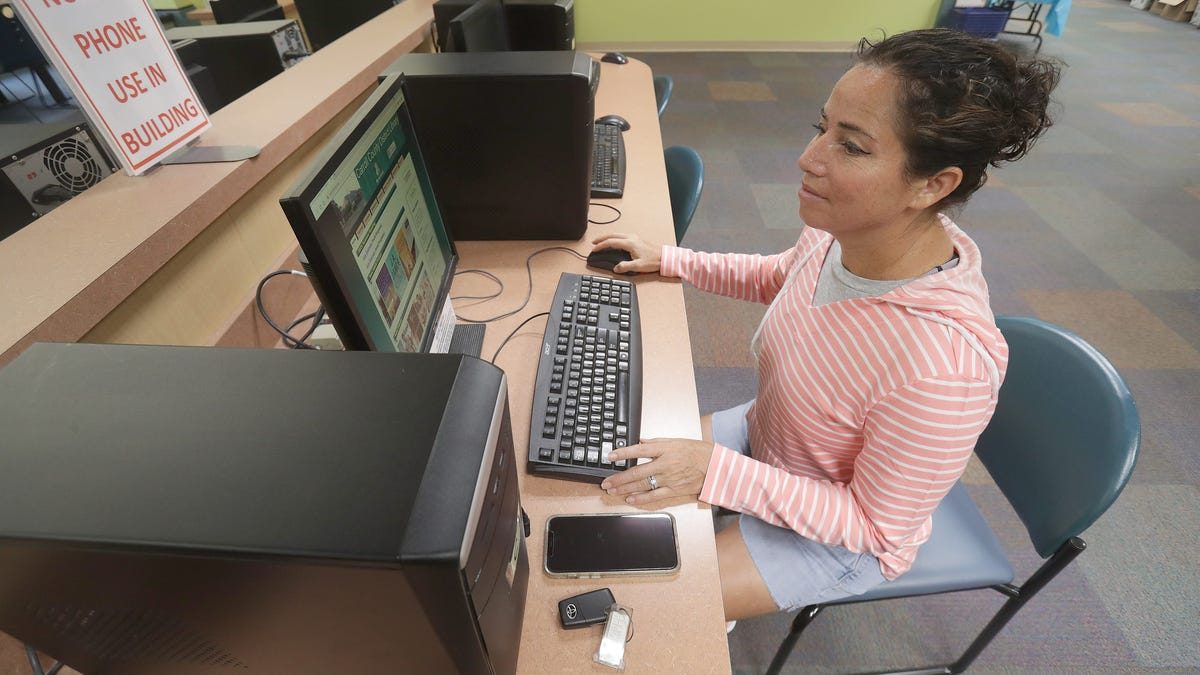SCOTUS hears case on Louisiana congressional maps
Lawyers from Louisiana argued that their new congressional maps are sound under “breathing room” promised by the Supreme Court.
WASHINGTON – The Supreme Court on Wednesday seemed likely to uphold an $8 billion program that subsidizes high-speed internet and phone service for millions of Americans, which has been challenged as being funded by an unconstitutional tax.
The case raises questions about how much Congress can “delegate” its legislative authority to a federal agency and whether the Supreme Court should tighten that standard.
Under a program Congress created in 1996, telecommunications companies are charged a Universal Service Fund fee – passed on to customers − that boosts phone and internet service to households and hospitals in rural areas, low-income families, and public schools and libraries.
A private administrator overseen by the Federal Communications Commission distributes the funding, collects the fees and estimates how much needs to be raised each quarter. The FCC must approve the estimate before it’s used to determine the fee for each carrier.
Consumers’ Research, a conservative group challenging this setup along with a carrier and a group of consumers, argues it’s Congress, not the FCC – and certainly not a private entity − that must determine the fee level.
“At its heart, this case is about taxation without representation,” said R. Trent McCotter, the attorney representing the challengers. “The amount of public revenue to raise is a quintessential legislative determination, not some minor detail to be filled in later.”
Both liberal and conservative justices took issue with McCotter’s argument that the program would pass muster if Congress merely sets an upper limit on the program, such as $1 trillion. They questioned how meaningful that would be.
“That seems pretty empty,” Justice Amy Coney Barrett said. “It’s just kind of throwing a number out there for the sake of throwing a number. Why have they really set the policy in a way that’s meaningfully different than they did in the statute?”
McCotter replied that setting a clear boundary would satisfy the constitutional requirement that Congress has the power to tax.
But Justice Brett Kavanaugh likewise said it “wouldn’t make a lot of sense” if the court said a $1 trillion limit set by Congress is a constraint but the law’s direction to the FCC to raise “sufficient” funds to achieve universal service is not.
Congress can give agencies an ‘intelligible principle’
Under past Supreme Court decisions, Congress can allow a federal agency to exercise discretion in implementing a law as long as it gives the agency an “intelligible principle” to follow.
Justice Elena Kagan said the principles are clear in this instance. The program has to subsidize services essential to education, public health and public safety. That doesn’t mean the FCC can include any services it wants, such as giving everyone Starlink, she said.
“There are constraints on this agency and on their operation of the program,” Kagan said.
Challenge is part of an effort to curb the `administrative state’
The Supreme Court’s conservative supermajority has, in recent years, curtailed executive agencies’ authority.
And the latest challenge is part of that larger conservative effort to curb the “administrative state.”
But Paul Clement, a former solicitor general for former President George W. Bush who represented users of the program, told the justices this is not the right case to overturn past Supreme Court decisions that set a low bar for the non-delegation rule.
“We all benefit from having a communications system that is truly universal,” he said. “I may not live in rural Alaska, but it’s nice to be able to place a call there.”
Consequences are ‘really troubling’
The Justice Department warned that declaring the funding scheme unconstitutional would jeopardize many other programs.
“The consequences of (the challenger’s) position are really troubling,” said Sarah Harris, the department’s acting solicitor general, creating a “minefield for the U.S. code.”
The telecommunications law, according to Harris, follows the same delegation framework Congress has used in a range of areas, including to prevent unfair competition, oversee the securities industry, ensure the safety of food and drugs, regulate labor relations and set air-quality standards.
Several justices echoed that concern.
Justice Samuel Alito said the court wasn’t given enough information about the possible impact on other programs. He also said he was “quite concerned” about what would happen to phone and internet service for people in rural areas if the court says Congress needs to play a more direct role but lawmakers don’t follow through.
Barrett, likewise, said the consequences could be “devastating” for the program.
McCotter responded that the more justices worry about how significant the program is, the greater the reason Congress should be more involved.
A decision is expected by the end of June.
